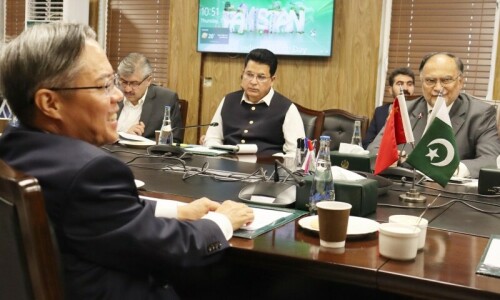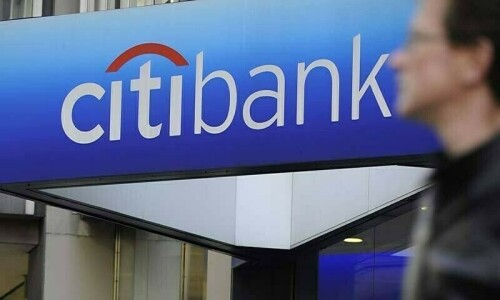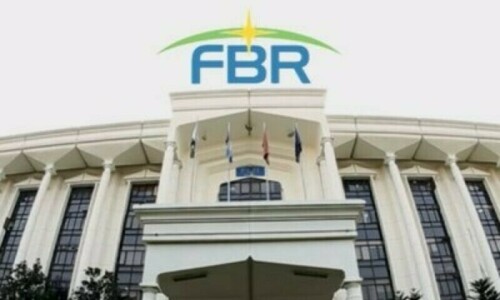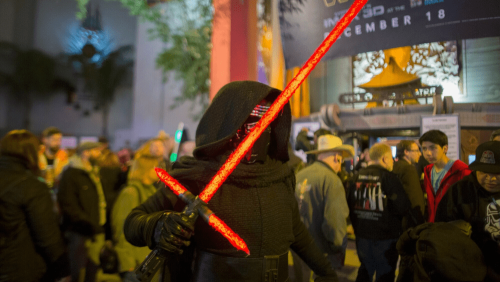IF all journalism were objective there would be no need for Al Jazeera to become a raging foil to BBC, CNN or Fox News for the coverage of Iraq, Afghanistan and elsewhere. There would be no exclusive credibility given to Noam Chomsky, John Pilger or Robert Fisk.
In fact, there would be no need for the so-called alternative media to give the ‘real’ picture as opposed to the corporate subterfuge that the supposedly mainstream media masks.
If all journalists were seekers of truth, the BBC correspondent in Manama would not describe the upsurge against Bahrain’s rulers as Shia-led, sectarian and therefore implicitly undeserving of sympathy against a Saudi-led crackdown on behalf of the island’s emirs.
The massacre of protesters in Yemen would be judged with equal sympathy as is given to the brave men and women fighting Qadhafi’s dictatorship in Libya.
If there were credibility in the BBC-CNN’s reporting of the ongoing upsurge in northern Africa, we would have learnt something also about the meeting in Nice in June last year that French President Sarkozy had called of African leaders to foil China’s inroads into the mineral-rich continent. Is there a link between the evidently controlled ‘revolutions’ witnessed in Tunisia and Egypt and the full-blown military intervention in Libya?
If objective journalism were the dominant feature of reporting the ‘Arab Spring’, then we would also be told of the benefits in the strife for two huge energy lobbies — oil magnates, for the yield that the Iraq-like military plunder promises in Libya, and the nuclear power lobbyists, for the way the conflict is keeping the focus away from the truth of the horrific Fukushima disaster. The lopsided debate in favour of nuclear plants in countries like India too would have been less brazen.
If freedom of press were truly the inviolable covenant of the free world then Julian Assange of WikiLeaks would be a hero not a villain at Capitol Hill where thoughts are entertained about declaring him a terrorist and therefore liable to physical elimination.
The US Army has filed 22 new charges against Pfc. Bradley Manning, accused of illegally downloading tens of thousands of classified US military and State Department documents that were then publicly released by WikiLeaks. The most serious of the new charges is ‘aiding the enemy’, a capital offence that could carry a potential death sentence.
How does that compare with the mysterious Raymond Davis episode in Pakistan? Would the men and women at Capitol Hill repatriate ex-major Rabinder Singh of India’s Research and Analysis Wing who spirited out WikiLeaks-like information to the CIA, before fleeing to the United States via Kathmandu in 2004? Would they return to India the lady from the CIA who took away every available byte from the country’s National Security Council Secretariat computer on a pen drive in 2006?
There is a crucial difference though between the Bradley Manning-Julian Assange duo and people like Rabinder Singh. The latter allegedly sold his country’s secrets for personal profit, whereas the WikiLeaks duo have risked their personal security to share with the world, not any one government or party, the nefarious (at times hilarious) world of American subterfuge.
The Hindu newspaper recently joined hands with WikiLeaks to publish what it says are US cables of interest to India. The fallout has been dramatic though it may end up changing nothing substantially.
The ruling Congress party, the opposition Bharatiya Janata Party (BJP) and even the main communist party — the Communist Party of India-Marxist — have been shown to have, to say the least, courted the US, to be seen in Washington’s good books, as it were.
By naming names of Congress officials and describing the volumes of currency notes they displayed (which were never meant to be revealed to the public) the cables appeared to confirm the opposition charge that Prime Minister Manmohan Singh won a confidence vote in 2008 after his party bribed opposition MPs.
For Dr Singh, this may have been nothing new. He was able to implement his free-market policies as finance minister only and only because the Congress won a trust vote by bribing a clutch of tribal MPs who were later jailed.
The defence put up by the prime minister was not meant to be funny. He denied the very existence of WikiLeaks, thus becoming the first leader in the world to make the bold gambit. Dr Singh then resorted to a dangerous logic. “I am disappointed that members of the opposition have forgotten what happened thereafter,” he boasted, pointing to his party’s subsequent poll win.
By Dr Singh’s logic Gujarat Chief Minister Narendra Modi should not be accused of mass murder any longer because the people of his state had elected him twice while Dr Singh is yet to win a Lok Sabha seat.
To conclude from all this that the Indian political system is about to be reformed because of the WikiLeaks exposures would be a mistake.
If the US cables have unwittingly exposed the corruption in the Congress party, they have also revealed the duplicity of the BJP. The party’s representatives assured American diplomats that their opposition to the US-India nuclear deal was for public consumption, not a preferred policy.
If there was complicity, as is evident from the cables, between the main parties and the US embassy, what chance is there of a move towards a truly free foreign policy, much less economic priorities in India? Why would anyone be interested in finding out who all have compromised India’s sovereignty to the US embassy?
This is where the role of The Hindu needs to be watched more closely despite its vital help in exposing the political malaise in India. Its editor said in a TV discussion that the paper was being responsible about the leaks and that it had taken out the names of some people from the reports?
Is the paper going to be the filter of ‘responsibility’ or is it a conduit to the full and complete picture of events as sought to be presented by WikiLeaks to the world? What names have been deleted and by whose authority? Is this not another kind of censorship in the name of propriety? Why blame the BBC and CNN if they are telling half-truths?
The writer is Dawn’s correspondent in Delhi.












































Dear visitor, the comments section is undergoing an overhaul and will return soon.